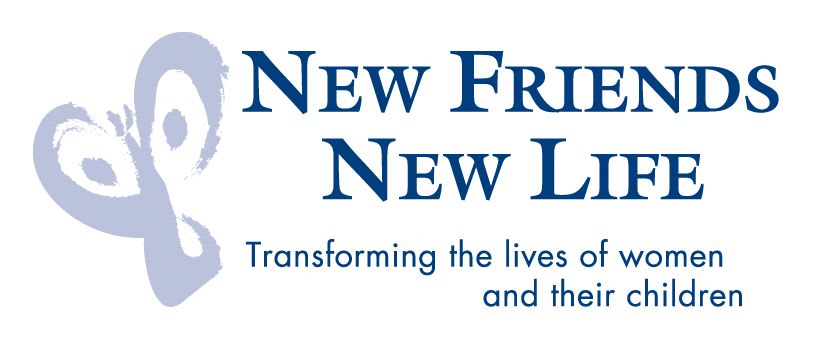Intergenerational Ministry: Grandparents as Disciple-makers

As I look back over my life, I can see God’s hand preparing me to minister to seniors. I can also see how God used many seniors to minister to me in my formative years.
My Grandparents, the Prayer Warriors
My grandparents played a vital role in leading me to Jesus Christ. I don’t think they knew they were discipling me, but that’s exactly what God was doing through them. They were both prayer warriors, and I had prayer with them every Sunday morning before we ate breakfast and went to church. We would close family devotions by quoting Scripture. I remember my grandmother quoting Matthew 28:19–20, “Therefore go and make disciples of all nations, baptizing them in the name of the Father and of the Son and the Holy Spirit, and teaching them to obey everything I have commanded you.”
My grandparents had a profound impact on my life and how I view ministry as intergenerational. Embracing age diversity is the very core of my ministry. I learned from my grandparents that discipleship is a way of life. It’s not just something we do at church; it makes up the fabric of who we are and what we intentionally do in relationship with each another. They have both gone to be with the Lord now, but I take the lessons they have taught me everywhere I go.
I grew up in an environment where words such as “discipleship,” “mentoring,” and “spiritual formation” were foreign. But the Spirit of God was still at work.
During my early years as a youth pastor I was discipled by the elderly Rev. Nathaniel Irvin, who took me under his ministerial wing and modeled what a godly pastor is like. I went everywhere with him—to visit the sick, to conventions, funerals, and weddings. I watched him minister to a whole community and not just his congregation. I sat at his feet for ten years before I went to seminary. And I learned from him that authentic ministry is intergenerational. He taught me that the church is at its best when the young and the old are integrated throughout the life of the congregation.
Connecting Old and Young
Seniors must remember what it was like to be young, and the young must remember that they may one day become seniors. Therefore we must be patient with one another. If we have a contemporary service for the young and a traditional service for seniors, we teach the young and the old to be intolerant of one another. We are bordering on ageism. The young and the old must come side by side with each other and minister to the glory of God together.
Paul the senior told Timothy the younger, “Do not rebuke an older man harshly, but exhort him as if he were your father. Treat younger men as brothers, older women as mothers, and younger women as sisters, with absolute purity” (1 Tim. 5:1–2). Churches in the twenty-first century would do well to take to heart this admonition as it relates to intergenerational ministry.
During a class on discipleship and mentoring I took at DTS, I heard Prof Hendricks say something one day that resonated with my spirit: “Every Timothy needs a Paul and every Ruth needs a Naomi.” Prof Hendricks’s words that day became a guiding principle for how I would carry out ministry. A young believer needs an older believer, someone seasoned in his or her spiritual walk to mentor and guide toward spiritual maturity. We need someone to show us the spiritual ropes to the Christian life. Paul told the Christians in Corinth to “follow my example, as I follow the example of Christ” (1 Cor. 11:1). In other words we all need someone after whom to model our Christian walk, someone who has walked with Christ long enough to show us the way.
A Lifetime of Discipling and Being Discipled
During my years in seminary my wife, Michelle, and I were fortunate to live and work at a retirement community. God made clear to us the calling He had placed on our lives to minister to the elderly. At this community I came to believe in the importance of ministering to seniors. A woman there named Prebble was about four-foot-five in stature, but she walked tall. She was ninety-three years old, and we became close friends. I became her son and she became my mother. She would always say to me, “You’re going to make a great preacher one of these days.” She encouraged me to teach a Bible study class at the retirement community every Wednesday. She said she would be there to support me. I agreed to teach the class, and attendance averaged about twenty seniors weekly. Prebble kept her word; she was there every week until she was no longer able to come. Teaching that class was one of the best decisions I ever made in ministry because the people ministered more to me than I did to them. They shared wonderful stories and nuggets of wisdom with me and each other.
God prepared my wife and me there to minister to a congregation in Seattle that is largely comprised of seniors. Older saints are the lifeline of the Mount Zion Baptist Church family. Every Wednesday morning I teach a Bible study class for seniors. We have a seniors ministry geared toward meeting them at their specific points of need. We have a seniors Sunday each year in which we celebrate their birthdays and accomplishments, both in the community and the church. And we have a retirement community of sixty apartment units called McKinney Manor. Our seniors serve the church family as a repository of wisdom, and we would be wise to listen. Almost everything I learned about ministry, I learned from seniors.


